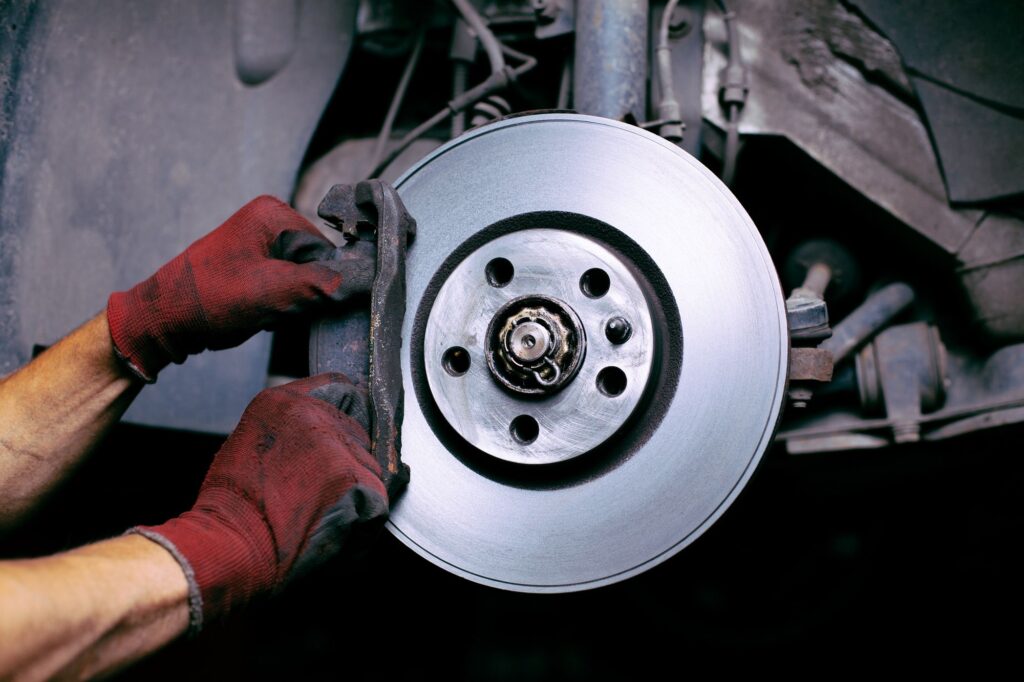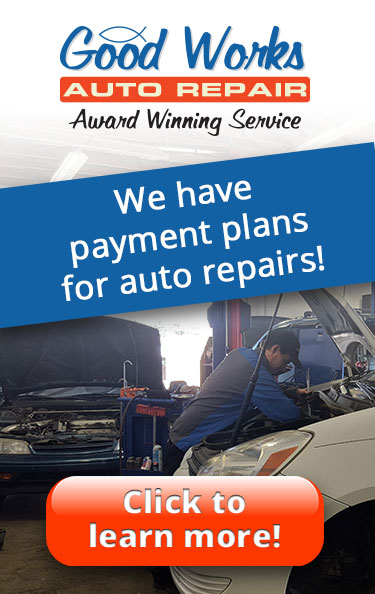
At some point or another, you have probably experienced that annoying sound when you stopped and wondered “Why are my brakes squeaking?” You might be happy to know that this is just a matter of physics. And, it’s very typical, even if you take care of your car like a beloved child. Squeaking brakes may not be a sign that anything is wrong with your vehicle. However, it’s important to know the cause of squeaking brakes so you know when it’s time to switch them out. After all, your brakes are very crucial to safe driving.
What causes squeaking brakes?
Brakes are comprised of a metal disc stuffed tightly between two pads. Often, with certain speed and pressure, friction in your brakes can create a squealing noise as brake materials rub together. However, this does not necessarily mean that you need to replace your brakes. There are many reasons brakes can make noise that are no cause for concern.
Worry-free reasons for noisy brakes
The following are some common reasons for squeaking brakes that may cause an annoying sound, but aren’t otherwise concerning:
- Dust, sand, or other intruders can sneak their way into your brakes, causing a squeak.
- Weather, especially cold temperatures, can cause brakes to squeak.
- Snow, rain, or high water can create a superficial layer of rust. This typically goes away after the rust flakes off during braking.
- Heavy loads can cause brakes to squeak because a lot more pressure is being applied to them.
- Strain from driving long downhill drives can cause heat that makes the brakes squeak.
- Newer cars use a harder brake pad. While this is safer than the type in older car models, they can certainly be louder.
The safety sound check
Even though squeaking brakes can be annoying, the sound you are hearing might actually be crucial to your safety. Most brake pads have a built-in piece that alerts drivers when it’s time to change the brake pads. When your brake pads begin to wear thin, a little piece of metal scratches against the metal brake disc. This in turn creates a high pitched sound … the sound that indicates your brake pads have reached the end of their usable life and should be replaced.
Simple solutions for squealing brakes
Squeaking brakes are simple and affordable to fix. Here are a few options for quieting them down and saving your sanity!
- Pay attention to how you drive.
While this sounds intuitive, the simplest solution is to downshift into a lower gear instead of relying on brakes. Also, practice defensive driving by keeping a safe distance between you and other cars. This not only helps prevent accidents but can also reduce the amount of pressure being applied to brakes.
2. Make sure your brakes are adequately lubed.
Adding a lubricant or brake grease can significantly help squeaking brakes, especially if the cause is dirt, rust, or sand.
While number one is completely up to you, your favorite auto repair shop can help with number two!
The type of brake pad matters
One of the easiest way to prevent squeaking brakes is to think about different brake pad options. When considering this, it is important to keep in mind the kind of driving you do daily.
Semi-metallic brake pads
Pros: These have the best stopping power compared to other options.
Cons: The downside is that they are noisier and are more prone to rotor wear and rust.
Non-asbestos organic (NAO) brake pads
Pros: These brake pads are quieter, cheaper, and reduce vibrations and heat.
Cons: Pads like this wear quickly and will require regular maintenance.
Ceramic brake pads
Pros: Ceramic pads have great stopping power (although not quite as good as semi-metallic), they’re quiet, and not prone to rusting.
Cons: These pads come with the highest price tag.
If you are still concerned about the noise your brakes are making, come into the shop and we will do a thorough brake inspection. Then, we can give you any recommendations for repair or service. We want to make sure you and your family stay safe on the roads!
Schedule My Appointment Now!
